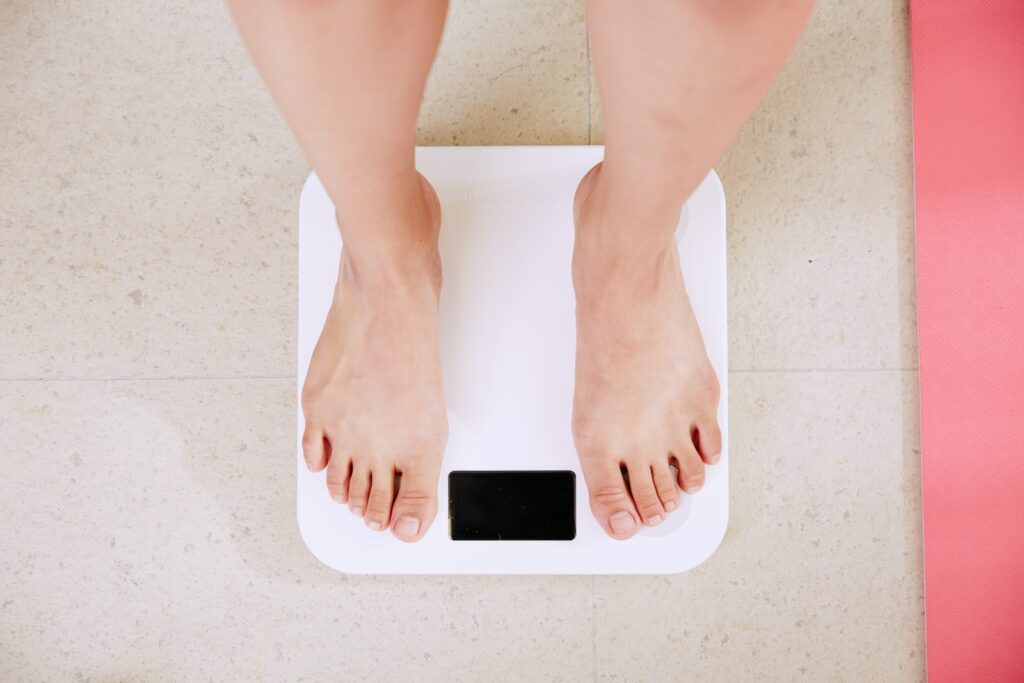
Losing weight quickly is a goal for many individuals who are eager to shed those extra pounds and improve their overall health. However, it’s essential to approach weight loss in a safe and sustainable manner to avoid potential health risks and ensure long-term success. In this comprehensive guide, we will explore evidence-based strategies to help you achieve your weight loss goals quickly and safely.
Losing weight quickly is a goal for many individuals who are eager to shed those extra pounds and improve their overall health. However, it’s essential to approach weight loss in a safe and sustainable manner to avoid potential health risks and ensure long-term success. In this comprehensive guide, we will explore evidence-based strategies to help you achieve your weight loss goals quickly and safely.
- 1. Understanding the Importance of Safe Weight Loss
- 2. Setting Realistic Weight Loss Goals
- 3. Adopting a Balanced and Nutritious Diet
- 4. Prioritizing Physical Activity and Exercise
- 5. Managing Stress and Emotional Eating
- 6. Getting Quality Sleep
- 7. Tracking Progress and Staying Accountable
- 8. Recognizing and Overcoming Weight Loss Plateaus
- 9. Embracing a Sustainable Lifestyle Change
- 10. Consultation with Healthcare Professionals
Disclaimer: Always consult with a healthcare professional before embarking on any weight loss journey or implementing significant dietary and lifestyle changes. This guide is for informational purposes only and should not substitute personalized medical advice.
1. Understanding the Importance of Safe Weight Loss
When it comes to weight loss, it’s crucial to prioritize safety and long-term sustainability over rapid results. While the idea of losing weight quickly may be tempting, it’s important to recognize the potential risks associated with extreme calorie restriction and excessive exercise. Rapid weight loss often leads to muscle loss, nutrient deficiencies, and a higher likelihood of regaining the lost weight once normal eating patterns are resumed.
The Academy of Nutrition and Dietetics advises aiming for a gradual weight loss of 1-2 pounds per week[^1^]. This approach allows for healthy body composition changes and ensures that you’re losing fat rather than muscle mass. Additionally, it promotes sustainable habits and minimizes the negative effects of drastic caloric restrictions.
2. Setting Realistic Weight Loss Goals
Before diving into any weight loss journey, it’s essential to set realistic and achievable goals. While it’s natural to want to lose weight quickly, it’s important to remember that everyone’s weight loss journey is unique and influenced by various factors such as genetics, metabolism, and lifestyle.
Start by assessing your current weight and determining a healthy weight range for your height, age, and body type. Consult with a healthcare professional or registered dietitian to help you determine a realistic and sustainable weight loss goal. They will consider your individual circumstances and provide personalized guidance tailored to your specific needs.
Remember, losing even a small percentage of your initial body weight can lead to significant health improvements, such as decreased blood pressure, improved blood sugar control, and reduced risk of chronic diseases.
3. Adopting a Balanced and Nutritious Diet
A balanced and nutritious diet is a cornerstone of any successful weight loss journey. Instead of focusing on restrictive diets or quick fixes, it’s crucial to adopt a sustainable eating plan that supports your overall health and well-being. Here are some key principles to consider:
Incorporating Whole Foods
Emphasize whole, unprocessed foods in your diet. These foods are rich in essential nutrients, fiber, and antioxidants, promoting optimal health and providing a sense of fullness. Include a variety of fruits, vegetables, whole grains, lean proteins, and healthy fats in your meals. These nutrient-dense foods provide the necessary fuel for your body while keeping you satisfied and reducing the tendency to overeat.
Portion Control and Mindful Eating
Practicing portion control and mindful eating can significantly contribute to weight loss success. Pay attention to your body’s hunger and fullness cues and aim to eat until you’re satisfied, not overly full. Avoid eating in front of screens or while distracted and savor each bite, focusing on the taste, texture, and aroma of your food. This mindful approach to eating can help you recognize true hunger and prevent overeating.
Consider using smaller plates and bowls to control portion sizes visually. Additionally, be mindful of liquid calories from beverages such as sodas, juices, and alcoholic beverages, as these can contribute to weight gain without providing substantial nutritional value.
Hydration and Its Impact on Weight Loss
Staying hydrated is crucial for overall health and can support weight loss efforts. Drinking an adequate amount of water can help control appetite, prevent overeating, and support proper digestion. Aim to drink at least 8 cups (64 ounces) of water per day, or more if you’re physically active or live in a hot climate.
In addition to water, incorporate herbal teas, sparkling water, and low-calorie beverages into your hydration routine. Limit the consumption of sugary drinks, as they are high in empty calories and can hinder weight loss progress.
4. Prioritizing Physical Activity and Exercise
Regular physical activity and exercise play a vital role in any weight loss journey. Exercise not only burns calories but also helps build lean muscle mass, improves cardiovascular health, and boosts overall well-being. Here are some key considerations when incorporating physical activity into your routine:
The Role of Cardiovascular Exercise
Cardiovascular exercises, such as brisk walking, running, cycling, or swimming, can help burn calories and contribute to weight loss. Aim for at least 150 minutes of moderate-intensity aerobic activity or 75 minutes of vigorous-intensity aerobic activity per week, as recommended by the American Heart Association[^2^]. Spread these sessions throughout the week to ensure consistency.
Find activities that you enjoy and that fit into your lifestyle. Consider joining group fitness classes, dancing, hiking, or playing sports to make exercise more enjoyable and sustainable. Remember, consistency is key, so find activities that you look forward to and that align with your preferences and interests. if you are unable to exercise, laser liposuction such as sculpsure may be an option that can be considered.
Strength Training for Muscle Development
In addition to cardiovascular exercise, incorporating strength training into your routine is important for building and maintaining lean muscle mass. Muscle mass is metabolically active and burns more calories at rest compared to fat mass. By increasing your muscle mass, you can boost your metabolism and enhance your body’s ability to burn calories throughout the day.
Include strength training exercises at least two days per week, targeting all major muscle groups. This can involve using free weights, resistance bands, weight machines, or bodyweight exercises. If you’re new to strength training, consider working with a certified personal trainer to learn proper form and technique.
Incorporating High-Intensity Interval Training (HIIT)
High-Intensity Interval Training (HIIT) is a popular and efficient form of exercise that can help you burn calories and fat in a shorter amount of time. HIIT involves alternating between periods of high-intensity exercise and short recovery periods. This type of workout can be done with various exercises, such as sprinting, cycling, or bodyweight movements.
HIIT sessions typically last 20-30 minutes and can be incorporated into your weekly exercise routine. However, it’s essential to listen to your body and gradually increase the intensity and duration of your workouts to avoid injury. If you have any underlying health conditions or concerns, consult with a healthcare professional before starting HIIT.
5. Managing Stress and Emotional Eating
Stress and emotional eating can significantly impact weight loss efforts. Many individuals turn to food as a coping mechanism for stress, boredom, or other negative emotions, leading to overeating and hindered progress. Here are some strategies to manage stress and emotional eating:
The Connection Between Stress and Weight Gain
Stress triggers the release of cortisol, a hormone that can increase appetite and lead to the accumulation of abdominal fat. Chronic stress can disrupt sleep, increase cravings for high-calorie foods, and interfere with healthy eating patterns.
Recognize your stress triggers and develop healthy coping mechanisms that don’t involve food. Engage in stress-reducing activities such as meditation, deep breathing exercises, yoga, or spending time in nature. Additionally, consider seeking support from a mental health professional who can provide guidance and strategies for managing stress effectively.
Implementing Stress-Management Techniques
Incorporate stress-management techniques into your daily routine to promote overall well-being and support weight loss efforts. These techniques can include deep breathing exercises, progressive muscle relaxation, journaling, or engaging in hobbies and activities that bring you joy.
Experiment with different stress-management techniques to find what works best for you. Incorporate these practices regularly to reduce stress levels and prevent emotional eating episodes.
Seeking Support from a Mental Health Professional
If you find that stress and emotional eating significantly impact your weight loss goals, consider seeking support from a mental health professional. They can provide guidance, tools, and coping mechanisms to help you manage stress, emotional eating, and any underlying emotional issues that may hinder your progress.
A mental health professional can also assist in identifying any potential eating disorders or unhealthy relationships with food. Remember, addressing your mental and emotional well-being is just as important as focusing on physical health.
6. Getting Quality Sleep
Adequate and quality sleep is often overlooked but plays a crucial role in weight management and overall health. Lack of sleep can disrupt hormonal balance, increase appetite, and lead to cravings for high-calorie, sugary foods. Here are some strategies to prioritize quality sleep:
Understanding the Relationship Between Sleep and Weight Loss
During sleep, our bodies regulate hormones responsible for appetite control, such as leptin and ghrelin. When sleep is insufficient or of poor quality, these hormones can become imbalanced, leading to increased hunger and a higher likelihood of overeating.
Establishing a consistent sleep routine and aiming for 7-9 hours of quality sleep per night can help regulate these hormones and support weight loss efforts.
Establishing a Consistent Sleep Routine
Create a sleep routine by going to bed and waking up at the same time each day, including weekends. Consistency helps regulate your body’s internal clock and improve sleep quality.
Prioritize relaxation before bed by engaging in calming activities such as reading, taking a warm bath, or practicing gentle stretching or yoga. Limit exposure to electronic devices, bright lights, and stimulating activities close to bedtime, as these can interfere with sleep.
Creating a Sleep Environment Conducive to Restful Sleep
Ensure that your sleep environment promotes restful sleep. Keep your bedroom cool, dark, and quiet. Use room-darkening curtains, earplugs, or a white noise machine if necessary. Invest in a comfortable mattress and pillows that support your body and provide optimal comfort.
Avoid consuming stimulating substances close to bedtime, such as caffeine and nicotine, as they can interfere with sleep. Instead, opt for calming herbal teas or warm milk to promote relaxation.
7. Tracking Progress and Staying Accountable
Tracking your progress and staying accountable can significantly contribute to weight loss success. Here are some strategies to help you monitor your journey and stay motivated:
Utilizing Food and Exercise Journals
Keeping a food and exercise journal can help you become aware of your eating habits, track your calorie intake, and identify areas for improvement. Write down everything you eat and drink, including portion sizes, as well as any physical activity or exercise you engage in. This awareness can help you make informed decisions about your diet and exercise routine.
Monitoring Weight and Body Measurements
Regularly weighing yourself and tracking your body measurements can provide tangible evidence of your progress. However, it’s important to remember that weight fluctuates naturally throughout the day and week due to factors such as hydration and hormonal changes. Instead of solely relying on the scale, consider using other indicators of progress, such as how your clothes fit or how you feel in your body.
Seeking Professional Guidance and Support
Consider seeking professional guidance and support from a registered dietitian, nutritionist, or weight loss coach. These professionals can provide personalized advice, tailored meal plans, and ongoing support to help you achieve your weight loss goals. They can also help you navigate any challenges or plateaus you may encounter along the way.
8. Recognizing and Overcoming Weight Loss Plateaus
Weight loss plateaus are a common occurrence during a weight loss journey. These periods of stalled progress can be frustrating and demotivating. Here are some strategies for overcoming weight loss plateaus:
Understanding the Science Behind Plateaus
Weight loss plateaus occur when your body adapts to the changes you’ve made, resulting in a temporary halt in weight loss. This adaptation can happen due to a decrease in metabolism, changes in hormonal balance, or the body’s natural tendency to resist further weight loss.
Adjusting Caloric Intake and Macronutrient Ratios
To overcome a weight loss plateau, consider adjusting your caloric intake and macronutrient ratios. This can be done by slightly reducing your overall calorie intake or altering the ratio of carbohydrates, proteins, and fats in your diet.
Experiment with different approaches to find what works best for your body. Keep in mind that small adjustments are usually more sustainable and effective than drastic changes.
Incorporating Variety and Trying New Exercises
Adding variety to your exercise routine can help break through a weight loss plateau. Try new forms of exercise, such as dance classes, swimming, or cycling, to challenge your body in different ways. Additionally, increasing the intensity or duration of your workouts can stimulate further weight loss.
9. Embracing a Sustainable Lifestyle Change
Sustainable weight loss involves adopting long-term lifestyle changes rather than relying on short-term diets or quick fixes. Here are some key principles to consider:
Avoiding Fad Diets and Quick Fixes
Fad diets and quick fixes may promise rapid weight loss, but they are often unsustainable and can lead to nutritional deficiencies or weight regain. Instead, focus on creating a well-balanced, nutritious eating plan that you can maintain in the long term.
Promoting Long-Term Health and Weight Maintenance
Shift your focus from solely achieving a specific number on the scale to promoting overall health and well-being. Emphasize nourishing your body with nutrient-dense foods, engaging in regular physical activity, managing stress, and getting adequate sleep. These lifestyle factors not only support weight loss but also contribute to long-term health and weight maintenance.
Celebrating Non-Scale Victories and Small Wins
Acknowledge and celebrate non-scale victories and small wins along your weight loss journey. These victories can include increased energy levels, improved physical fitness, better sleep quality, or positive changes in body composition. Recognizing these achievements can help you stay motivated and reinforce the positive impact of your lifestyle changes.
10. Consultation with Healthcare Professionals
If you have underlying medical conditions, significant weight loss goals, or concerns about your health, it’s essential to consult with healthcare professionals. They can provide personalized guidance, monitor your progress, and address any specific needs or challenges you may face during your weight loss journey.
Registered dietitians and nutritionists can offer tailored meal plans, address nutrient deficiencies, and provide ongoing support. Collaborating with a healthcare team ensures that you’re receiving safe and appropriate guidance throughout your weight loss journey.
In conclusion, losing weight quickly and safely requires a comprehensive approach that includes adopting a balanced and nutritious diet, prioritizing physical activity, managing stress and emotional eating, getting quality sleep, tracking progress, and seeking professional guidance when necessary. Remember, sustainable weight loss is a journey that requires patience, determination, and a commitment to long-term lifestyle changes. By implementing evidence-based strategies and seeking support from healthcare professionals, you can achieve your weight loss goals and improve your overall health and well-being.








